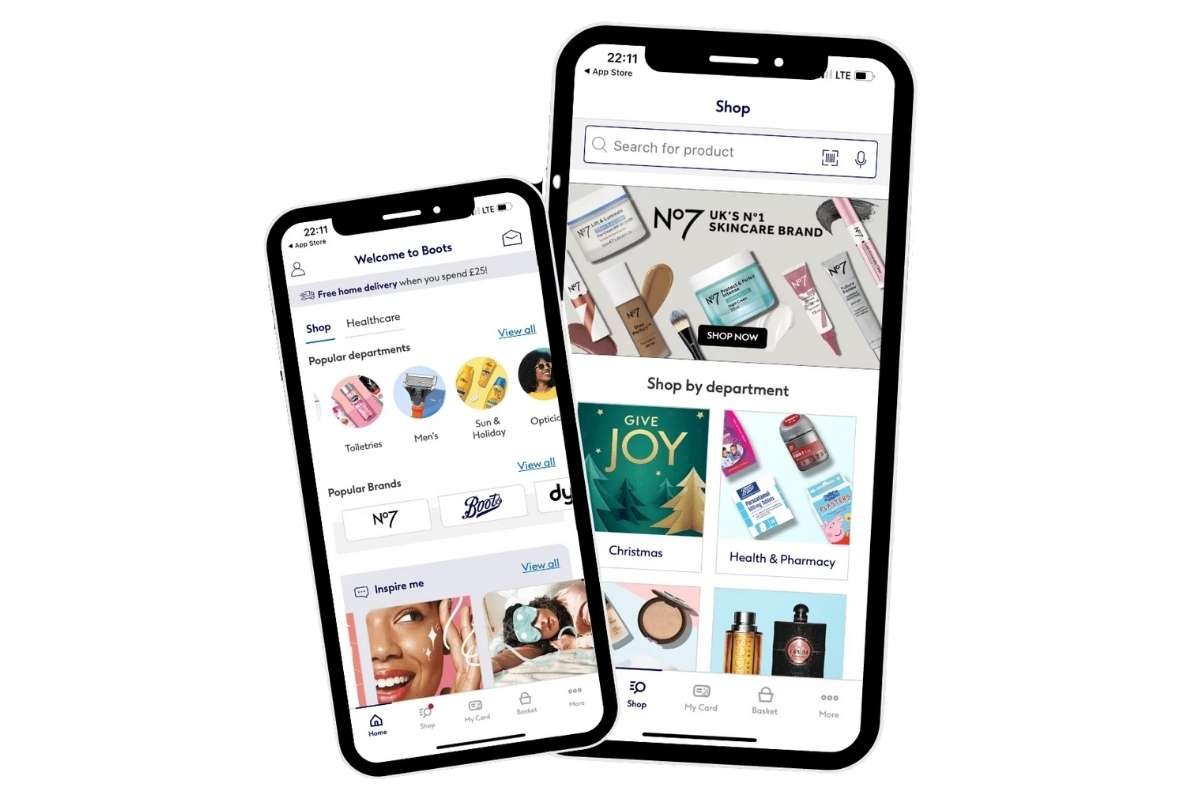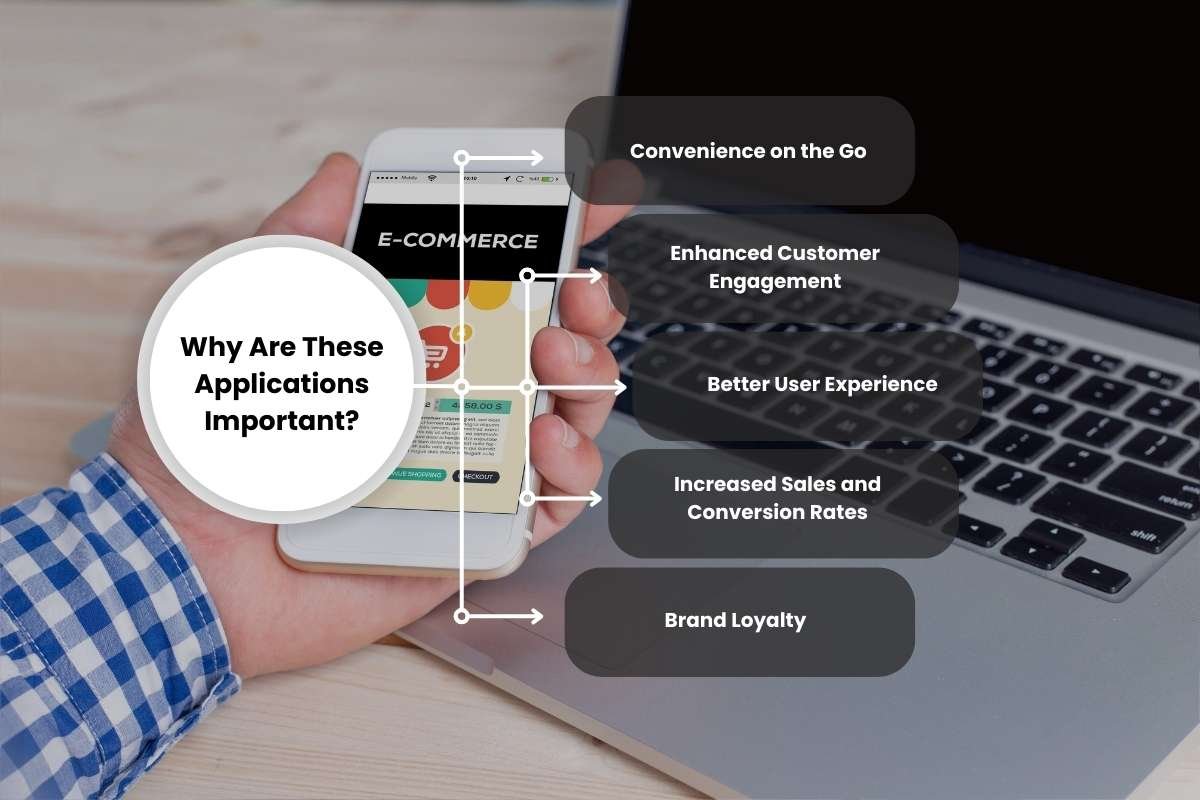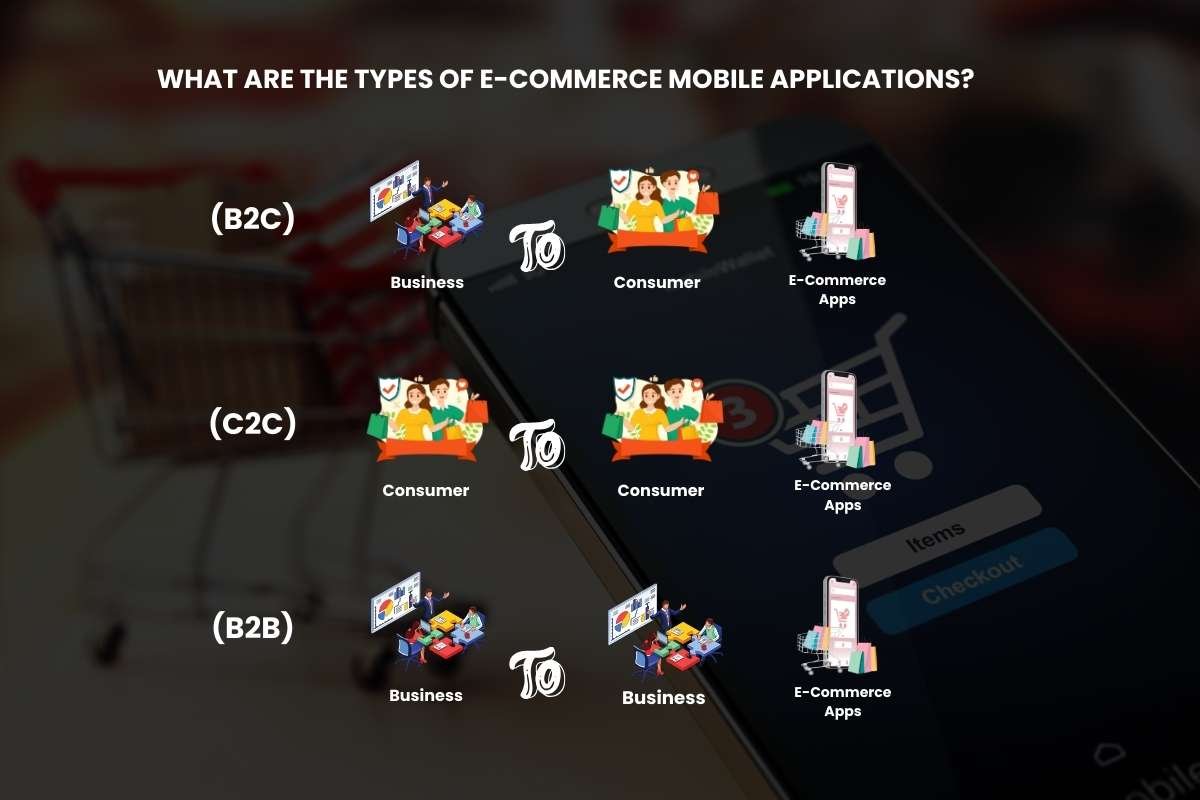No limit can be found when measuring the reach and success of e-commerce businesses. With all these technological advancements, everything has become easy. This is the era of the internet. People are going on a shopping spree like ever before. Doing that online is the major change the world has seen. Being factual, the lockdown has boosted the growth of e-commerce businesses. From ordering new clothes or shoes to getting groceries, there is no need to rush to a nearby store. All we have to do is take our mobiles and with just a click everything will be under our feet within minutes. The first we interact with is our mobiles.
There is an application for every other thing. Mobile technology has completely changed the way we shop. This comfort we experience is because of the e-commerce mobile applications. Given the competitive nature of the current market, it has become necessary for businesses to have a mobile application. In this article, we will discuss more on how businesses are depending on mobile applications that are changing the way people perceive things.
What Exactly Is An E-Commerce Application?
E-commerce is all about buying and selling products or services online. For example, you just browse a local bakery store, add your favorite items, and finally pay for them just by sitting on your comfy sofa. The whole process is smoothly done with the help of e-commerce applications. These tools help businesses promote their products, manage payments, and even coordinate deliveries so that you get what you ordered with just a few clicks.
What is Mobile E-Commerce?

Mobile e-commerce refers to the buying and selling of goods and services through mobile devices. An e-commerce mobile application is an app designed to allow users to browse, purchase, and interact with products or services using their smartphones. These applications offer an interactive shopping experience that perfectly meets the needs of the customers. Diverting from the old-school e-commerce websites, mobile apps are faster and provide user-friendly interfaces. The best examples are Amazon, eBay, or even famous food joints such as Starbucks and McDonald’s. These mobile applications have completely changed the way how we shop.
Main Features of Digital E-Commerce Mobile Applications
- Product Listings: Browse products with detailed descriptions, prices, and images. Easy search and categorized browsing make finding items easy.
- Shopping Cart: Add, review, and edit your selections before checking out.
- Secure Payments: Multiple payment options, including cards, digital wallets, and bank transfers for secure transactions.
- User Accounts: Personalize the experience with wish lists, order history, and product recommendations.
- Order Tracking: Information regarding the updates and managing returns effortlessly.
- Push Notifications: Get alerts on order updates, exclusive offers, and product launches.
- Customer Reviews: Honest feedback and ratings from other shoppers to help make smarter buying decisions.
- Shipping Info: Transparent delivery timelines, costs, and reliable order tracking.
- Easy Returns: Easy return processes to keep customers satisfied.
- Customer Support: Chat, email, or call support for instant assistance.
- Business Insights: Analytics tools to help businesses understand sales trends and customer preferences.
Learn More: Paperless Office Made Easy: Best Document Management Software
Why Are These Applications Important?
The increase in mobile commerce is not a normal phenomenon, it’s a change in how consumers engage with brands.
Here’s why e-commerce mobile applications are important:

- Convenience on the Go: People are always on the move. An e-commerce mobile application allows users to shop anytime, anywhere, without any physical strain or being tied to a computer.
- Enhanced Customer Engagement: Mobile apps provide businesses with direct communication channels through notifications, personalized offers, and recommendations.
- Better User Experience: With faster load times and interactive interfaces, apps offer a smoother experience than mobile websites.
- Increased Sales and Conversion Rates: According to studies, mobile apps have a higher conversion rate than websites.
- Brand Loyalty: A well-designed app with engaging features encourages repeat usage and builds long-term customer relationships.
Learn More: Best AI Tools in 2025, Unlocking Potential with AI Tools
What Are The Types of E-Commerce Mobile Applications?
E-commerce applications are evolving to offer the best experience for customers and businesses by understanding their demands.
Here are some of the common e-commerce applications:

- Business to Consumer (B2C) E-Commerce Apps: These apps connect businesses directly with individual shoppers, offering everything from product listings to secure payments and doorstep delivery. Popular examples include Amazon, Shopee, and Nordstrom.
- Consumer-to-consumer (C2C) E-Commerce Apps: C2C apps make it easy by connecting buyers and sellers directly. They handle payments and offer dispute resolution to keep things smooth. The best examples are platforms like Facebook Marketplace, eBay, and Etsy where people are both sellers and buyers.
- Business to Business (B2B) E-Commerce Apps: B2B apps focus on helping companies sell products or services to other businesses. These transactions often involve larger volumes, long-term partnerships, and sometimes complex negotiations.
Learn More: Mobile App Developers: Driving Innovation in the Digital Age
The Future of E-commerce Mobile Applications
E-commerce apps are becoming a bigger part of our everyday lives, and things are only going to get better. Imagine being able to see how a new piece of furniture would look in your room before you buy it, or trying on a pair of glasses virtually. With AR and VR, these apps will get even better at predicting what you want, making shopping feel more interactive. For businesses, the future is all about innovation and staying focused on creating the best experience for customers.
Conclusion
E-commerce has transformed significantly and mobile applications are the reason for this big change. If you are planning to develop your first app or a shopper for your business, it would be a great move to devise applications that offer consumers an interactive shopping experience.
These apps are not just about selling products, they’re about creating enjoyable experiences that keep customers coming back. As mobile commerce continues to grow, investing in an e-commerce mobile application could be one of the best decisions a business can make.
FAQs
- 79% of smartphone users have made a purchase using their mobile device.
- Mobile e-commerce sales are projected to make up over 72% of total e-commerce revenue by 2025.
- Users spend 90% of their mobile time on apps rather than browsers.










